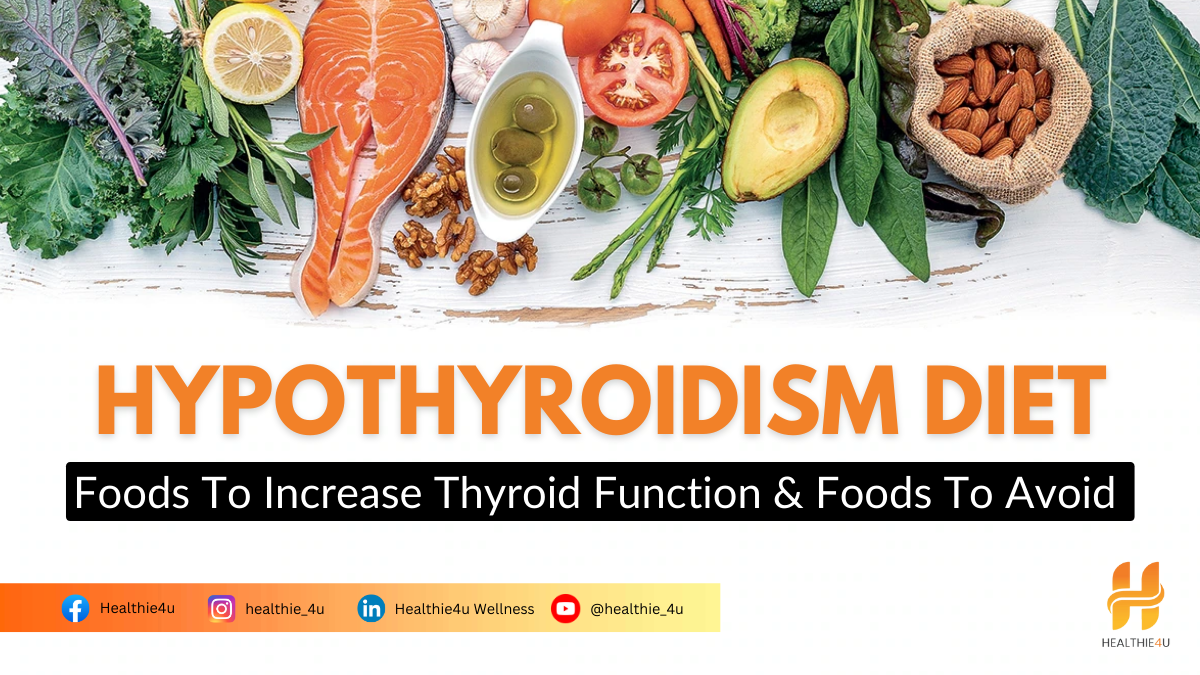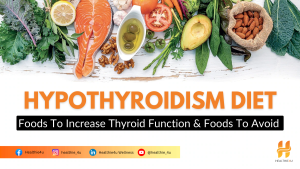

Hypothyroidism, a condition where the thyroid gland is underactive, affects millions of people worldwide. It can lead to fatigue, weight gain, and depression. While medication is often necessary to manage this condition, many wonder if dietary changes can enhance thyroid function. Let’s explore whether certain foods can support thyroid health and improve overall well-being.
Understanding Hypothyroidism
The thyroid gland, located in the neck, plays a crucial role in regulating metabolism through the release of hormones. When it doesn’t produce enough hormones, bodily functions slow down. Common symptoms of hypothyroidism include:
- Fatigue
- Weight gain
- Cold intolerance
- Depression
- Dry skin and hair
- Muscle weakness
Key Nutrients for Thyroid Health
Several nutrients are essential for optimal thyroid function. Incorporating these into your diet may support thyroid health:
- Iodine: Iodine is vital for thyroid hormone production. Seafood, dairy products, and iodized salt are excellent sources. However, it’s crucial not to overconsume iodine, as it can have the opposite effect on thyroid function.
- Selenium: This mineral helps convert thyroid hormones into their active form. Brazil nuts, sunflower seeds, and fish are rich in selenium.
- Zinc: Zinc supports thyroid hormone production and immune function. Foods like beef, chicken, and pumpkin seeds are good sources of zinc.
- Vitamin D: Low levels of vitamin D are often found in people with hypothyroidism. Sun exposure, fatty fish, and fortified foods can help maintain adequate vitamin D levels.
- Iron: Iron deficiency can impair thyroid function. Red meat, lentils, and spinach can boost your iron intake.
Beneficial Foods for Hypothyroidism
In addition to focusing on key nutrients, incorporating the following foods into your diet may help support thyroid function:
- Seaweed: Rich in iodine, seaweed can help maintain thyroid hormone levels.
- Fish: Fish like salmon, mackerel, and sardines are high in omega-3 fatty acids and selenium.
- Dairy: Milk, cheese, and yogurt provide a good source of iodine and vitamin D.
- Nuts and Seeds: Brazil nuts are particularly high in selenium, while pumpkin seeds provide zinc.
- Whole Grains: Foods like quinoa, brown rice, and oats contain essential vitamins and minerals that support overall health.
Foods to Avoid
Certain foods may interfere with thyroid function and should be consumed in moderation:
- Soy: Soy products can interfere with hormone absorption. Limit intake of tofu, soy milk, and edamame.
- Cruciferous Vegetables: Vegetables like broccoli, cabbage, and cauliflower can affect thyroid function if consumed in large quantities. Cooking them reduces their impact.
- Processed Foods: These often contain high levels of sodium and unhealthy fats, which can exacerbate symptoms of hypothyroidism.
Lifestyle Tips for Managing Hypothyroidism
In addition to dietary changes, the following lifestyle tips can help manage hypothyroidism:
- Regular Exercise: Physical activity can boost metabolism and improve energy levels.
- Adequate Sleep: Quality sleep is essential for hormone regulation and overall health.
- Stress Management: Practices like yoga, meditation, and deep breathing can help reduce stress and improve thyroid function.
Conclusion
While dietary changes alone cannot cure hypothyroidism, incorporating specific nutrients and foods into your diet can support thyroid function and improve symptoms. Always consult with a healthcare provider before making significant changes to your diet or medication regimen. By combining a balanced diet with a healthy lifestyle, you can better manage hypothyroidism and enhance your overall well-being.


